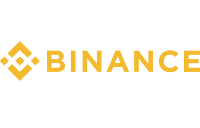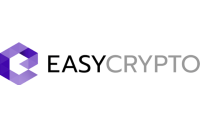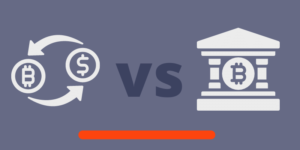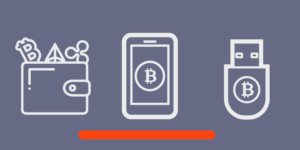How to buy and store cryptocurrency in New Zealand
Our comprehensive guide explains your options if you’re looking to invest in crypto from NZ.

Updated: 31 March 2025
The breakdown
- There are many cryptocurrency exchanges available online, including some based in NZ.
- Safely storing cryptocurrency is not straightforward. There are a number of storage options available, each with pros and cons.
- Cryptocurrencies are highly volatile and unpredictable investments, so take care if you decide to invest.
Author: Kevin McHugh, Head of Publishing at Banked.
What is cryptocurrency?
A cryptocurrency is a form of digital money. It can be used to make purchases at businesses that accept it, but at this moment in time it’s viewed mainly as an investment asset.
Cryptocurrencies have no physical form and are stored in digital wallets that can be online or offline. They exist on a distributed ledger called a blockchain. A blockchain stores information about its cryptocurrency, including all the transactions that have been made.
There are currently thousands of cryptocurrencies available with some of the most well-known being Bitcoin, Ethereum, Dogecoin and Cardano.
Key features of cryptocurrencies include:
- They are decentralised: A cryptocurrency is part of a network that doesn’t exist in one location, but on many different computers around the world.
- They are not backed by a central bank: Unlike the New Zealand dollar or the currencies of other countries, cryptocurrencies are not managed by a bank or government.
- They are highly volatile: The price of cryptocurrencies can rise and fall dramatically and quickly.
Because all of this information is stored on many computers on a network, it is incredibly secure and tamper-proof.
How can I buy cryptocurrency in New Zealand?
The most common and easiest easy to buy crypto is through a cryptocurrency exchange. Cryptocurrency exchanges are like stockbrokers in that they give you access to buy and sell assets.
Here’s a step-by-step guide on how to buy cryptocurrency in NZ.
1. Choose the right crypto exchange
There are literally hundreds of cryptocurrency exchanges out there, so make sure you compare fees, the number of cryptocurrencies available, deposit options, and so on, before you make a choice. Compare crypto exchanges and brokers in the table below or see our guide to the best crypto exchanges for a more detailed look.
| Exchange/retailer | Available crypto | Fiat currencies | Deposit options | Key fees | Promotions | Learn more |
|---|---|---|---|---|---|---|
 Binance
Binance
|
350+ | 18 (including NZD) | Credit card |
- Trading fee: Maker: 0.02-0.1%
Taker: 0.04-0.1% - Deposit fee: 3.5%-5% (minimum $10) |
None currently | Binance review |
 Easy Crypto
Easy Crypto
|
155 | NZD | Bank transfer, credit card, POLi | - 0.89% trading fee and 0.4% forex fee | None currently | |
 Swyftx
Swyftx
|
312+ | 2 (including NZD) | Bank transfer, credit card, POLi |
- Trading fee: 0.6% (high-volume trading discount) - Deposit fee: $0 |
None currently | |
 Independent Reserve
Independent Reserve
|
27 | 4 (including NZD) | Credit card |
- Trading fee: Up to to 0.5% - Deposit fee: $15 (no fee for deposits over $5,000) |
None currently | |
 Crypto.com
Crypto.com
|
250+ | 20+ (including NZD) | Credit card |
- Trading fee: Maker: 0.04-0.4%
Taker: 0.1-0.2% - Deposit fee: $0 |
None currently |
2. Open an account and verify your identity
When you open an account you’ll need to provide fairly standard details such as your name and contact details.
After this, you will need to verify your account. The verification process can vary from platform to platform, but it typically involves providing an image of your photo ID (such as driver’s licence or passport) and confirmation of your address (such as a utility bill).
Some may request a separate selfie or short video of yourself. This may seem a little odd but it’s a standard practice that prevents the use of financial accounts or things like money laundering.
3. Buy your cryptocurrency
Once your account is set up and verified, you are free to make your crypto purchase.
Find the cryptocurrency you want to buy on the platform and select how much you want. The choices you have for funding the purchase will depend on the exchange. Several offer credit/debit card, POLi and bank transfers, but bear in mind that not all exchanges allow deposits in New Zealand dollars.
If you already have some kind of cryptocurrency, you can transfer that to your exchange account. This is also an option to consider if you want to buy on a particular exchange that doesn’t have an NZD deposit option.
When you make your purchase, your cryptocurrency will either be in your exchange account (if your exchange has a wallet option) or you will provide the address of your crypto wallet to which your newly purchased crypto can be sent.
Cryptocurrency exchanges vs brokers — what’s the difference?
When you buy cryptocurrency it will very likely either be through either a crypto exchange or a crypto broker. Although they provide a similar crypto buying experience, they do operate differently.
Crypto exchanges
Exchanges provide a platform where people can trade cryptocurrencies among themselves. The exchange facilitates the trade between the two and charges a fee for doing so. In this sense, an exchange is a little bit like Trade Me, but for buying and selling crypto.
You can use an exchange for exchanging one cryptocurrency for another, or you can buy crypto using a fiat currency like New Zealand dollars. However, because exchanges are much more likely to be based abroad, only a handful accept New Zealand dollars as a deposit currency.
Lots of Kiwis still sign up for international crypto exchanges due to the advanced trading features that some offer. To do this they either:
- use an online money transfer service that lets them transfer money between accounts of different currencies, or
- purchase crypto from a local provider, then transfer that to their preferred international exchange account.
Crypto brokers
A crypto broker operates as an intermediary between you and a particular person or organisation that is selling and buying cryptocurrency. This entity sets the price at which they will buy or sell a particular cryptocurrency, and the broker then helps them by bringing traders who will meet that price.
Some brokers in New Zealand refer to themselves as retailers as they hold some cryptocurrency themselves which can use to directly meet market demand.
How do I store crypto?
Safely storing your cryptocurrency is a little more complicated than simply dropping it into a savings account — you need a digital wallet.
While we might refer to wallets as storing currency, a more accurate description would be that they store private keys that provide access to your cryptocurrency that exists on the blockchain.
Some exchanges have a wallet where you can store cryptocurrency, but it’s not recommended for an extended period of time due to security concerns. Crypto exchanges are prime targets for cybercriminals and there are numerous stories of hackers stealing millions of dollars worth of cryptocurrencies.
For example, in January 2022 The Verge reported that Crypto.com was hacked which resulted in $30 million USD in Bitcoin and Ethereum being stolen. In December 2021, the BBC reported that the BitMart crypto exchange lost $150 million in a hack.
The larger exchanges will have greater security than smaller platforms, but ultimately moving your money out to either an online or offline cryptocurrency wallet is recommended. We explore both kinds below.
Online wallets
Online cryptocurrency wallets are essentially apps that are installed on your computer or smartphone. They are usually easy to use and some can store several different kinds of cryptocurrency.
Also known as hot wallets, online wallets are a common way of storing cryptocurrency thanks to their convenience, but they are considered less secure than offline wallets. As they are installed on devices connected to the internet, they can still be a target of hackers.
Offline wallets
Offline wallets, or cold wallets, are those that are not connected to the internet. While less convenient than an online wallet, they are protected against hackers and malware.
There are two types of offline wallets:
- Hardware wallet: This is usually a USB device that you only connect to a computer when you want to use your cryptocurrency. These devices are typically simple to use, very secure and start from around $150 NZ. The two most popular hardware wallet brands are Ledger and Trezor.
- Paper wallet: A paper wallet is simply the public and private keys that form the basis of a wallet printed out on a piece of paper. There are several websites that offer a secure means of creating one of these wallets for free. Paper wallets were popular a few years back, but they have since fallen from popularity due to concerns around safe storage.
Learn more about your storage options in our guide to crypto wallets.
Public and private keys explained
Public and private keys are fundamental to how you access and use your cryptocurrency.
Before we look at each one, it’s important to remember that even with an online or offline wallet, your cryptocurrency is actually stored on the blockchain — the wallet just stores the details needed to access it.
What’s a private key?
A private key is a unique code that provides you with access to your crypto on the blockchain. Any form of cryptocurrency wallet is fundamentally a means of storing and protecting your private key.
It is very important that you never share your private key as anyone who has it has access to your crypto. Equally, if you lose access to your private key, you have lost access to your crypto.
What’s a public key?
A public key allows for transfers to your wallet. For example, if you bought crypto on an exchange you would send it to your wallet by providing your public key.
While it has a relationship to your private key, it’s effectively impossible to establish what your private key is from your public key.
This means it’s similar to your bank account number in that you can share it with anyone without risk.
Is crypto a good investment?
Over the last decade, cryptocurrency has gone from a highly niche tech curiosity to one of the most widely discussed investment opportunities.
The explosive increase (and subsequent decrease) in value of Bitcoin and other cryptos has drawn a lot of attention and prompted many to buy in with the hope of seeing their investment skyrocket.
Like any other investment type, cryptocurrency is impossible to label simply as a good or bad investment. However, it’s certainly one of the riskier investment options and you should only put in what you can ultimately afford to lose.
These are some of the key things you should factor into your decision to invest in crypto or not:
- It’s unpredictable: Cryptocurrencies are incredibly volatile and their values regularly surge and plummet. While some are eager to promote the idea that cryptocurrencies ultimately continue to climb in value, no one knows how the market will look even in the short-to-medium term.
- Safe storage is challenging: Whether you choose an online or an offline wallet, safely storing crypto is not as straightforward or secure as the majority of other investment types.
- It could offer diversification: The value of the various cryptocurrencies has shown little correlation to the value of other investment types, like shares. If you do have other investments, crypto could be a way to further diversify your portfolio.
- There are a lot of cryptocurrencies to choose from: There are thousands of cryptocurrencies out there. As with any investment, potential buyers should research which cryptocurrency they’re interested in and make an informed choice.
Cryptocurrency staking
Aside from simply purchasing cryptocurrency with the hope that it will increase in value, it’s also possible to passively earn rewards on crypto. This is done through an activity called ‘staking’.
Crypto staking involves committing some or all of your crypto to support the running of the blockchain. Your holding is used to validate transactions and add new blocks to the blockchain. In return, you are rewarded with interest on the amount you’ve staked.
Annual percentage yield (APY) varies with the cryptocurrency you stake and can range from as low as 1-2%, to as high as 70% with some coins.
Learn more about crypto staking and how to do it in our guide.
Is cryptocurrency regulated in New Zealand?
Cryptocurrencies are not defined as financial products in the Financial Markets Conduct Act, and so they are not technically regulated.
However, any New Zealand-based cryptocurrency exchange or retailer is captured under the law as offering a financial service and should therefore be registered on the Financial Service Providers Register (FSPR).
All crypto companies that interact with retail customers must also belong to a dispute resolution scheme. You can find out which dispute resolution scheme a particular NZ crypto exchange or retailer belongs to on the FSPR.





